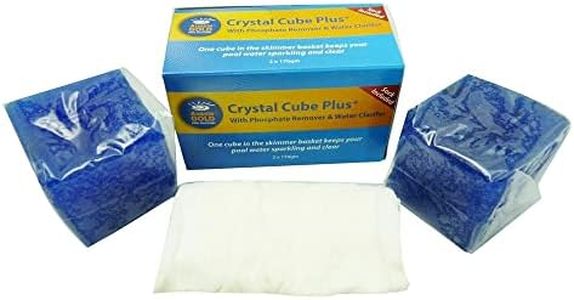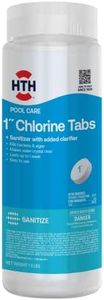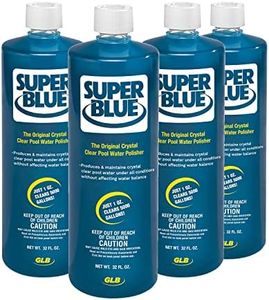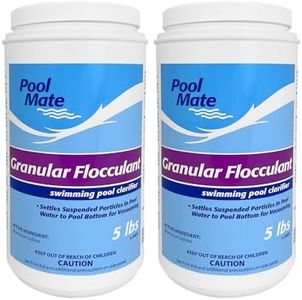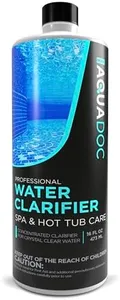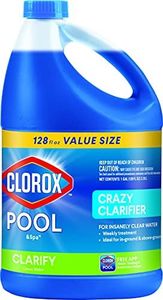We Use CookiesWe use cookies to enhance the security, performance,
functionality and for analytical and promotional activities. By continuing to browse this site you
are agreeing to our privacy policy
9 Best Pool Clarifiers
From leading brands and best sellers available on the web.Buying Guide for the Best Pool Clarifiers
Choosing the right pool clarifier can make a huge difference in keeping your swimming pool water sparkling and inviting. Pool clarifiers work by clumping together tiny, suspended particles in the water that would otherwise be too small for your filter to catch. When shopping for a clarifier, it’s important to understand what your pool actually needs; consider factors like your pool's size, how dirty the water gets, and how often you use the pool. Knowing a few key features can help you pick the solution that will keep your pool clear and help maintain a balanced, healthy swimming environment.Type of ClarifierThe type of clarifier refers to the formula used to bind debris in the water. There are traditional polymer-based clarifiers, natural or enzyme-based clarifiers, and some products designed for quick fixes before heavy use. Polymer clarifiers are popular for being effective at combining fine particles so they can be filtered out, while enzyme-based products are more eco-friendly and help break down organic material. Quick-fix types work rapidly for visible results but may need more frequent application. If your pool regularly deals with cloudy water, a polymer type is a reliable go-to. For eco-conscious users or pools with a lot of organic debris (like leaves or sunscreen), enzyme-based clarifiers can be a smart pick.
Dosage and ConcentrationDosage and concentration mean how much clarifier you need to add to your pool and how strong the solution is. Some clarifiers are highly concentrated and require only a small amount per treatment, while others need larger volumes to be effective. Higher concentration may save time and last longer, but using too much can sometimes cause cloudiness rather than fix it. Review the label for dosing instructions and make sure the product matches the size of your pool. If your pool is large or you want a once-a-week routine, a concentrated formula might be best, but for smaller or rarely used pools, a standard strength is usually enough.
Compatibility with Pool TypeCompatibility means making sure the clarifier is safe and effective with your specific pool system, including saltwater or chlorine-treated pools, and whether your pool uses sand, cartridge, or diatomaceous earth (DE) filters. Some clarifiers are designed for particular filter types and may clog certain filters if not matched correctly. Always check that the clarifier works for your pool’s water system and filter to avoid damage and maximize performance. If you’re not sure, pick a clarifier labeled as 'universal' or 'all pool types' to cover your bases.
Ease of UseEase of use refers to how simple the clarifier is to measure, mix, and apply. Some clarifiers can be poured straight in, while others may need dilution or special care during application. Easy-to-use options are great for quick maintenance, especially if you’re new to pool care or like to keep things simple. Look for products with clear instructions and dosing caps to make the process convenient and mess-free.
Speed of ResultsSpeed of results is how fast the clarifier works to clear up cloudy water. Some products act very quickly, showing results in a few hours, while others are designed for slow, long-term clarity maintenance. Fast-acting clarifiers are good if you need your pool to be clear in time for a party or after a storm, but regular slow-release clarifiers are usually better for ongoing clarity. Think about your typical pool usage—if you often need quick fixes, go for a fast-acting product, but if you want steady, all-season clarity, pick a clarifier designed for gradual improvement.
